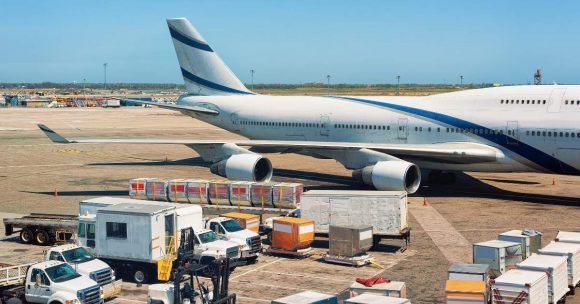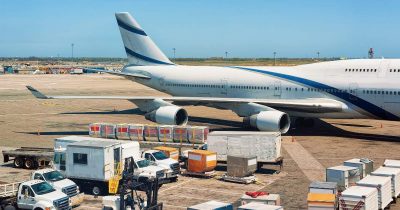The shipping giant MSC’s air cargo division has added a third Boeing to its fleet. The aircraft will be operated by Atlas Air and complements the existing weekly service.
The new aircraft will operate on the Hong Kong to Dallas, Fort Worth route.
Senior vice president MSC Air Cargo, Jannie Davel, says the new addition will enable the company to address the changing market’s demands and enhance trade connections for the its clients.
Outsourced aircraft
Atlas Air Worldwide is a leading global provider of outsourced aircraft and aviation operating services. It is the parent company of Atlas Air, Inc., and Titan Aviation Holdings, Inc. It is a majority shareholder of Polar Air Cargo Worldwide, Inc.
Chief Commercial Officer and head of sustainability, Atlas Air Worldwide Richard Broekman says: “We are proud to support the ongoing expansion of MSC’s air cargo solution by providing additional speed, flexibility, and reliability to their existing network. We look forward to this third 777 Freighter entering into service for MSC and will welcome the arrival of the fourth later this year.”
MSC enters the air cargo skies
Last year, MSC Air Cargo celebrated its first landing of its first aircraft, a B777-200F. This aircraft services routes between China, the US, Mexico, and Europe. These routes are dedicated to air freight of pharmaceutical products, perishable goods, and high-value goods.
In October, MSC’s air cargo division launched its first direct flight from Italy to Japan with the aim of exporting high-value Italian products. This weekly service operates every Friday with departure from Malpensa, arriving the following day in Japan.
The Boeing 777-200 aircraft has a capacity of 100 tons and will freight high-value Italian products – including luxury fashion and accessories – destined for the Far East markets.
Air cargo market
Global Market Insights reports the rapid growth in e-commerce has pivoted the consumer market towards online platforms. “Consumers now expect faster delivery times and smooth deliveries. To meet these expectations, e-commerce companies rely on the speed and efficiency of cross-border air transportation.”
Companies worldwide are using airfreight to get products to their customers in fast time. Items like perishable goods are often air freighted to ensure maximum shelf life and to serve companies like grocery stores with fresh food. Air cargo is safe and secure, which leads companies which deal with high-valued goods to choose airfreight.
Airfreight allows logistics companies to transport freight anywhere in the world. Where many shipping companies may choose to ship cargo by sea, critical items are transported by air – these are either pharmaceuticals, car parts, or healthcare-related goods for hospitals.
About the author
Sharl is a qualified journalist. He has over 10 years’ experience in the media industry, including positions as an editor of a magazine and Business Editor of a daily newspaper. Sharl also has experience in logistics specifically operations, where he worked with global food aid organisations distributing food into Africa. Sharl enjoys writing business stories and human interest pieces.











